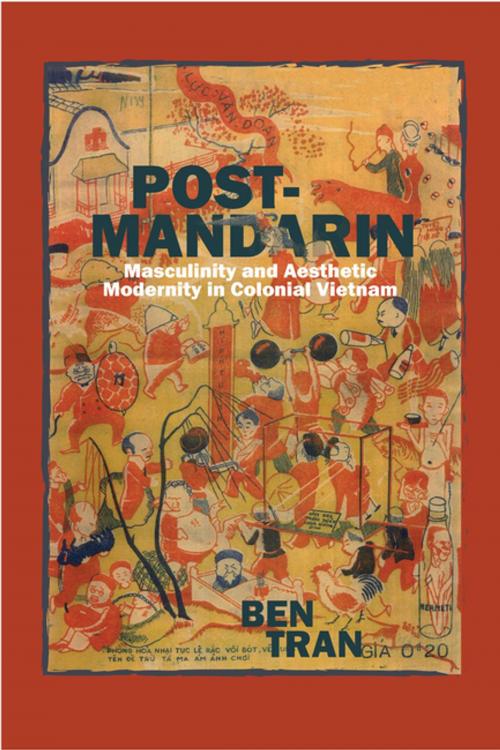Post-Mandarin
Masculinity and Aesthetic Modernity in Colonial Vietnam
Nonfiction, History, Asian, Southeast Asia, Social & Cultural Studies, Social Science, Gender Studies, Fiction & Literature, Literary Theory & Criticism| Author: | Ben Tran | ISBN: | 9780823273157 |
| Publisher: | Fordham University Press | Publication: | January 2, 2017 |
| Imprint: | Modern Language Initiative | Language: | English |
| Author: | Ben Tran |
| ISBN: | 9780823273157 |
| Publisher: | Fordham University Press |
| Publication: | January 2, 2017 |
| Imprint: | Modern Language Initiative |
| Language: | English |
Post-Mandarin offers an engaging look at a cohort of Vietnamese intellectuals who adopted European fields of knowledge, a new Romanized alphabet, and print media—all of which were foreign and illegible to their fathers. This new generation of intellectuals established Vietnam’s modern anticolonial literature.
The term “post-mandarin” illuminates how Vietnam’s deracinated figures of intellectual authority adapted to a literary field moving away from a male-to-male literary address toward print culture. With this shift, post-mandarin intellectuals increasingly wrote for and about women.
Post-Mandarin illustrates the significance of the inclusion of modern women in the world of letters: a more democratic system of aesthetic and political representation that gave rise to anticolonial nationalism. This conceptualization of the “post-mandarin” promises to have a significant impact on the fields of literary theory, postcolonial studies, East Asian and Southeast Asian studies, and modernist studies.
Post-Mandarin offers an engaging look at a cohort of Vietnamese intellectuals who adopted European fields of knowledge, a new Romanized alphabet, and print media—all of which were foreign and illegible to their fathers. This new generation of intellectuals established Vietnam’s modern anticolonial literature.
The term “post-mandarin” illuminates how Vietnam’s deracinated figures of intellectual authority adapted to a literary field moving away from a male-to-male literary address toward print culture. With this shift, post-mandarin intellectuals increasingly wrote for and about women.
Post-Mandarin illustrates the significance of the inclusion of modern women in the world of letters: a more democratic system of aesthetic and political representation that gave rise to anticolonial nationalism. This conceptualization of the “post-mandarin” promises to have a significant impact on the fields of literary theory, postcolonial studies, East Asian and Southeast Asian studies, and modernist studies.















